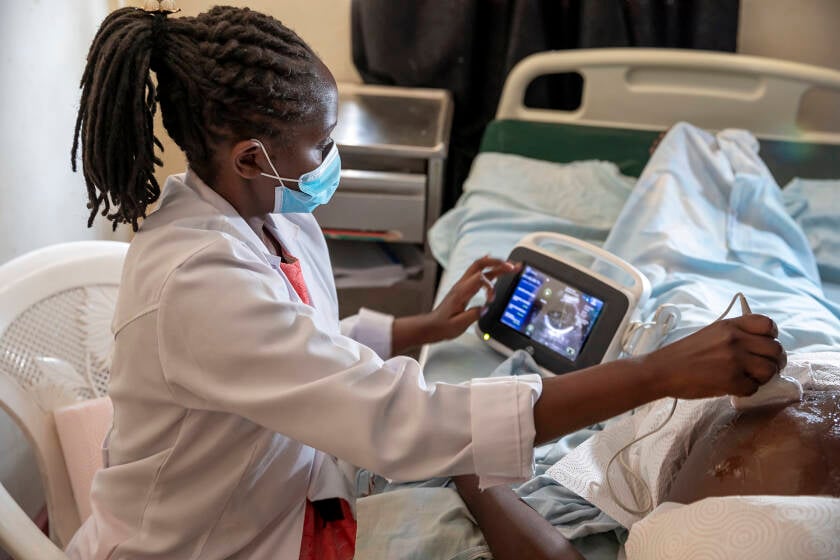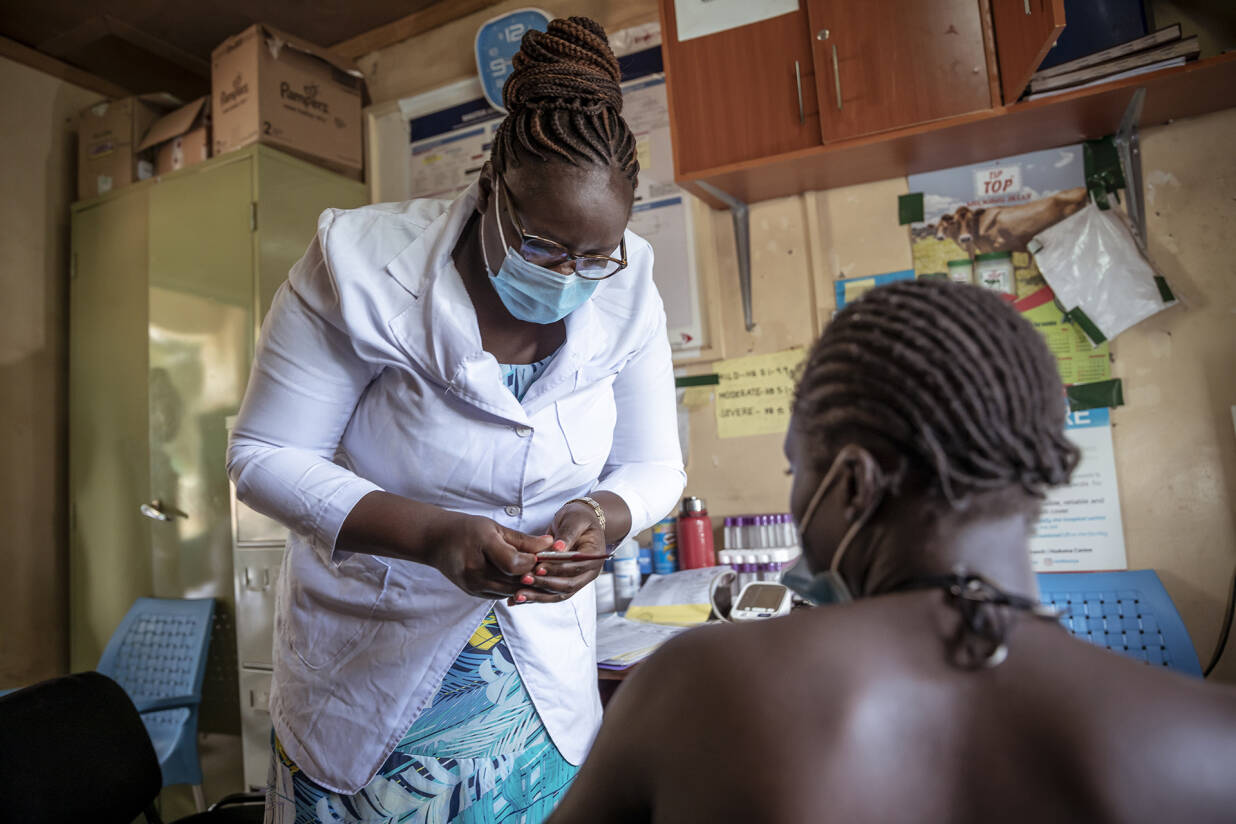EDCTP looks back at a successful and fruitful Tenth Forum, which was held from 17 to 21 October 2021 virtually from Maputo, Mozambique. The theme, Equity in research for health, ran like a thread through all the Forum's sessions and culminated in a lively debate which once again showed the commitment of all partners and stakeholders towards this goal.

overview
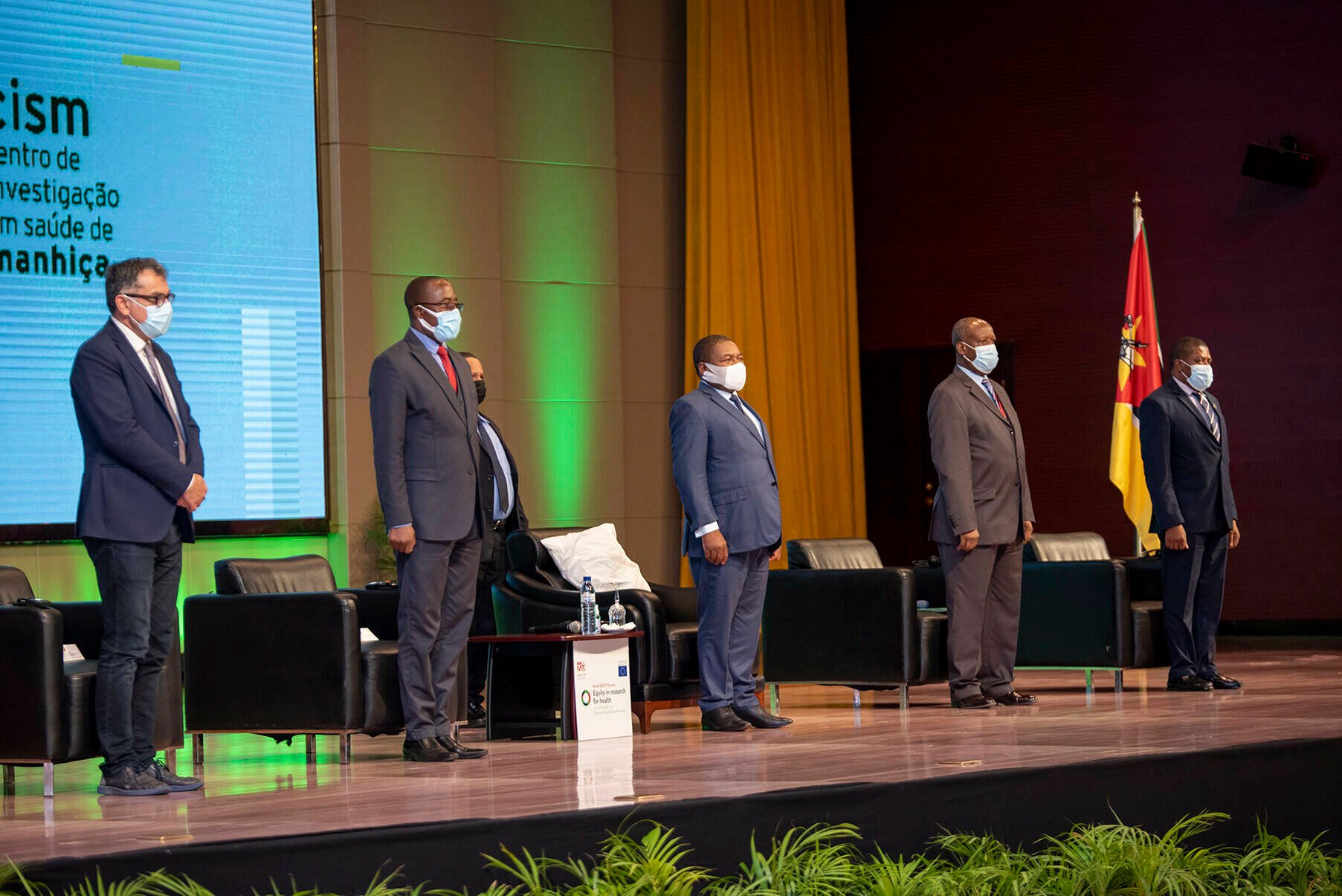
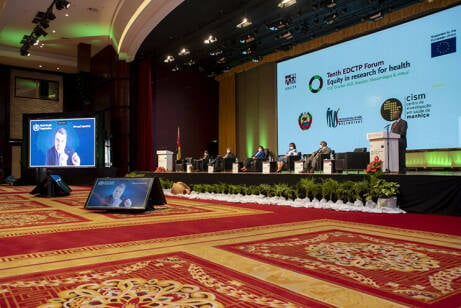
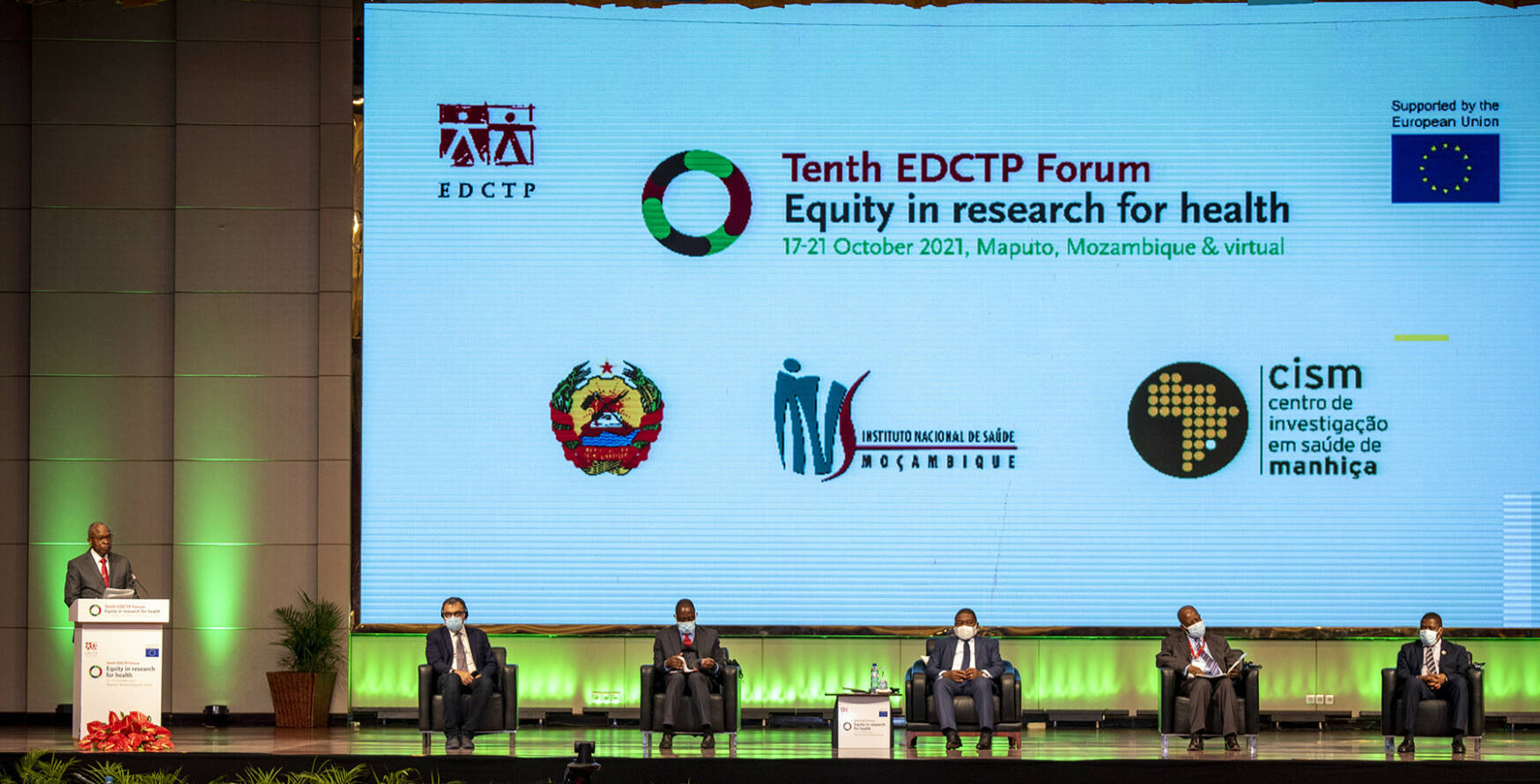
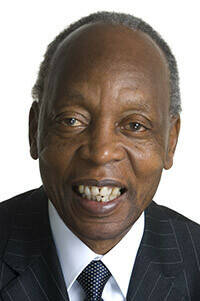



of experts contracted for EDCTP call for proposals evaluation procedures are female
of EDCTP-funded fellows are female researchers
of EDCTP-funded projects are coordinated by female researchers
EDCTP and the key role it plays
The Forum demonstrated the respect that EDCTP has won. The focus on meaningful partnerships and African leadership has been much praised. The partnership is now being referred to as a blueprint for new ‘EDCTP-like’ initiatives. The importance of the Forum itself has also become clear – it has grown since the first meeting in Rome at which fewer than 100 people were present.
The Forum was given some glimpses of the deliberations now under way that will determine the way in which the partnership’s next phase – the Global Health EDCTP3 Joint Undertaking – will be structured and how it will seek to address the many challenges facing the health of people across Africa.
Yes, there were some technical glitches, but thanks to the hard work from the secretariat and the organising and programme committees, the hybrid conference format worked. As Dr Michael Makanga (EDCTP Executive Director) observed, mid-pandemic it is actually a very appropriate time to hold a Forum!
Another important Mozambican milestone was the launch of EDCTP’s highest prize, named in honour of Dr Pascoal Mocumbi, a former Health Minister and Prime Minister of Mozambique. Dr Mocumbi became EDCTP’s High Representative for Africa in 2003 and played a key role in the development of the partnership. Michael Makanga said Dr Mocumbi had played a critical role in laying the foundation for EDCTP credibility with African governments.
The EDCTP Tenth Forum theme: Equity
- the inequity in global COVID-19 vaccination rates is striking
- more research is now taking place on the infections responsible for much of Africa’s disease burden but we must work towards achieving equitable access to the products which result from this research
- it is not just a matter of supplying medicines; sound health systems are required that address such neglected matters as pharmacovigilance
- neglected diseases affect mostly the very poorest people; they also must be reached with new products and services
- women’s health conditions (such as female genital schistosomiasis) receive insufficient attention
- Africans should have access to all new technologies still under development, including the most advanced such as personalised medicine
- African scientists face more barriers in their career progression than their colleagues in other regions
- we must increase the number of female scientists, for which we need a clear strategy
- equity can only be achieved if everyone wants to make it happen; a change in attitude/mind-set is what is most needed
- the example of other nations – such as China, India, South Korea – show us that Africa too can be a science powerhouse and reduce its burden of disease.
EDCTP has always made clear that addressing inequalities is a cornerstone of its programme and central to its mission. Asked why it had been chosen as the main theme of the Tenth Forum (Equity in Research for Health), Programme Committee Chair Professor Catherine Hankins said it was very appropriate as there are so many inequalities relating to health research. These include North-South disparities and the difficulties faced by women researchers in comparison with their male colleagues.
Equity was the red thread through all the Forum’s sessions and culminated in the Forum’s first ever debate, in which a panel tried to win the public vote in favour or against the motion: Equity in innovation, partnership, and research is a desirable but unrealistic goal. The motion was defeated and the majority of voters believed that equity is possible and is already happening now. A sponsored symposium was organised by the European Global Health Research Institutes Network (EGHRIN) - Equal Voices: Addressing Inequities in Global Health Research Participation speakers. Throughout the course of the conference references were made to specific challenges in achieving equity. These included:
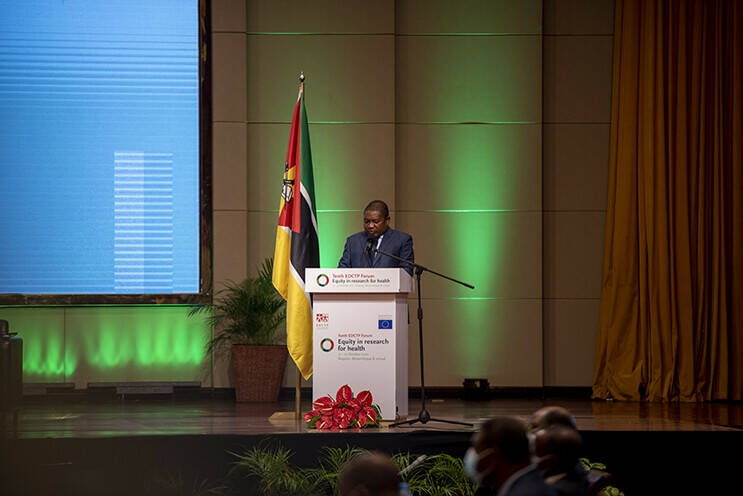
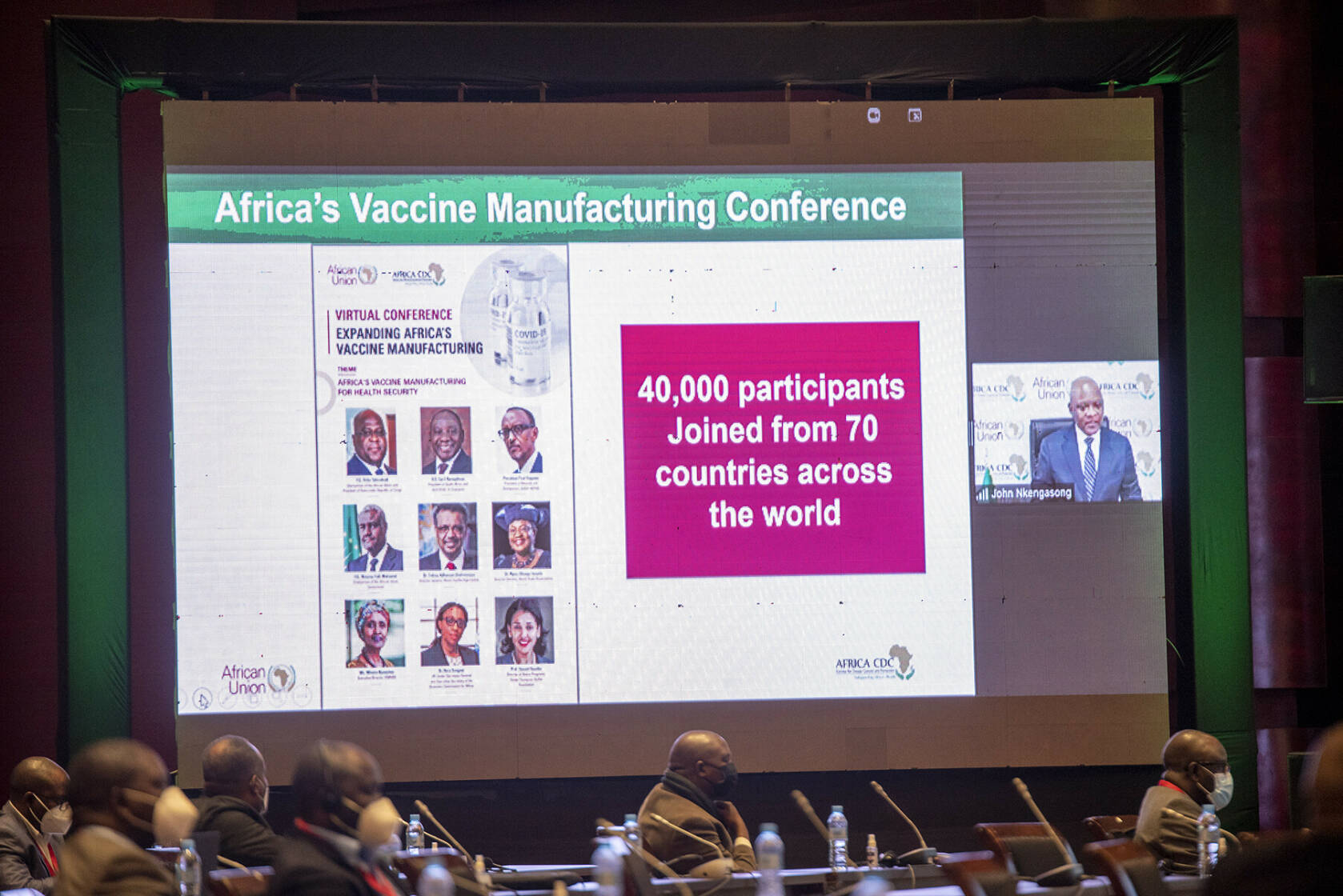
Our host nation: Mozambique
More than just providing a conference hall, Mozambique was responsible for many inputs to the Forum. The Local Organising Committee played an important role in the event. To have a Forum opened by a serving President – His Excellency Mr Filipe Jacinto Nyusi, President of the Republic of Mozambique – was both an honour and a tribute to what EDCTP has achieved. Mr Nyusi said that his presence could be taken as an indication of the commitment of his government to health research as a means of addressing poverty.
Forum participants were then welcomed by Dr Leonardo Simão, who is Chair of the Local Organising Committee as well as being EDCTP High Representative for Africa. Dr Simão spoke of the importance of health workers making decisions that were based on evidence. This is well recognised in Mozambique and has been stressed in training at the National Institute of Health (INS) and the Manhiça Health Research Centre (CISM). Also part of the welcome were singing and dancing and two short films about the country.
Mozambique’s Minister of Health Hon. Dr Armindo Tiago said that Mozambique had been a member of EDCTP since the second programme – EDCTP2. He stressed that EDCTP has shown itself to be an important force in developing new interventions. It has helped in the battle against AIDS, malaria, TB and also COVID-19.
COVID-19 and its impact on the work of EDCTP
The current pandemic was of course much discussed throughout the Forum. Many speakers said that this new threat to health has exposed many existing inequities, not just between regions and countries, but between men and women, and most importantly between those with higher and those with lower incomes. Presentations focusing particularly on COVID-19 included an account of Mozambique’s own vaccination programme (given by Dr Esperança Sevene), highlighting both the need to vaccinate pregnant and lactating women and the essential requirement of improved pharmacovigilance to detect and act on adverse events following vaccination. An overview of the challenges for Africa as a whole was also given by Dr John Nkengasong of Africa Centres for Disease Control and Prevention. One of the Forum’s symposia (sponsored by Deutsche Stiftung Weltbevoelkerung [DSW]) also looked at the impact of the pandemic, the role of partnership and the potential opportunities that might result from it. Several parallel sessions and oral poster presentations presented the results from projects that were supported by EDCTP’s COVID-19 research in sub-Saharan Africa emergency funding call.
It is ironic, given the inadequate supply of vaccine doses available to Africa, that acceptance rates amongst Africans offered COVID-19 vaccination are exceptionally high – much higher than in many countries in other regions where vaccines are readily available. In the meantime, COVID-19 has been responsible for delays and disruptions to health research and to the delivery of healthcare across Africa.
Governments, funding agencies and many institutions around the world have quite rightly made big changes to how they work in the light of the pandemic. Many speakers said the ‘architecture’ of health research is changing. This poses challenges for individual researchers and for organisations, including EDCTP. The full impact of COVID-19 is of course not yet clear and will not be until the pandemic resolves. On the positive side, the new recognition of the damage that can be caused by an infectious disease may result in more research funding and improved epidemic preparedness. But there have been wake-up calls before that were not heeded.
This year sees a celebration for health research in Mozambique – the Manhiça Health Research Centre (CISM) is marking its 25th Anniversary. CISM’s activities, supported in particular by Spain, have included important studies on the Haemophilus influenzae B vaccine and the clinical evaluation of RTS,S/AS01 – the world's first malaria vaccine. The centre is also a WHO reference laboratory for infectious diseases. Rotavirus, pneumococcal disease, artemisinin combination therapy (especially in pregnancy) and HIV diagnosis in children are other topics that have received attention at CISM. Presentations about the work of both NIH and CISM were given during the Forum.
Dr Pascoal Mocumbi

Watch a short video to take you a virtual visit to the Manhiça Health Research Centre in Mozambique




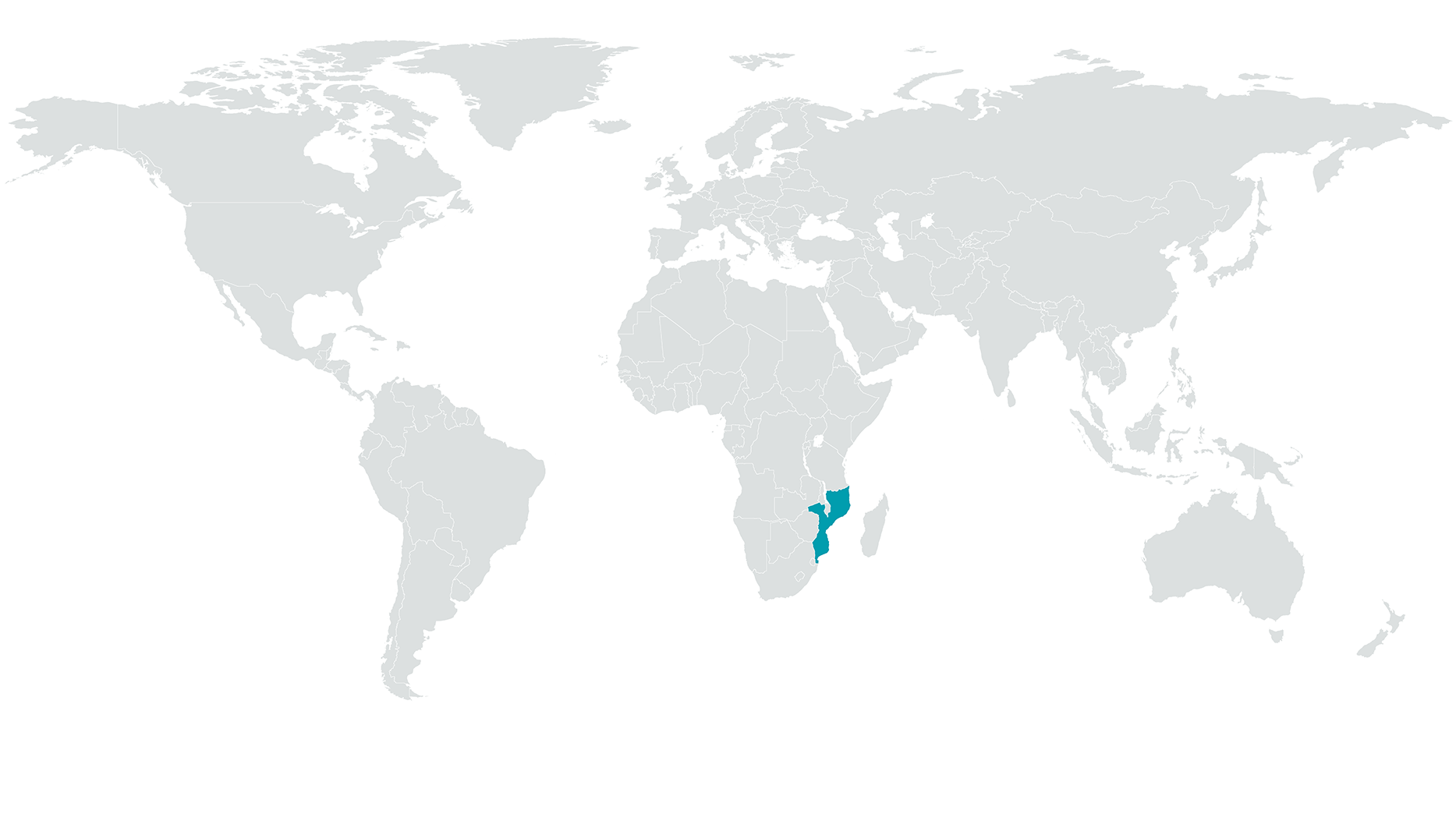
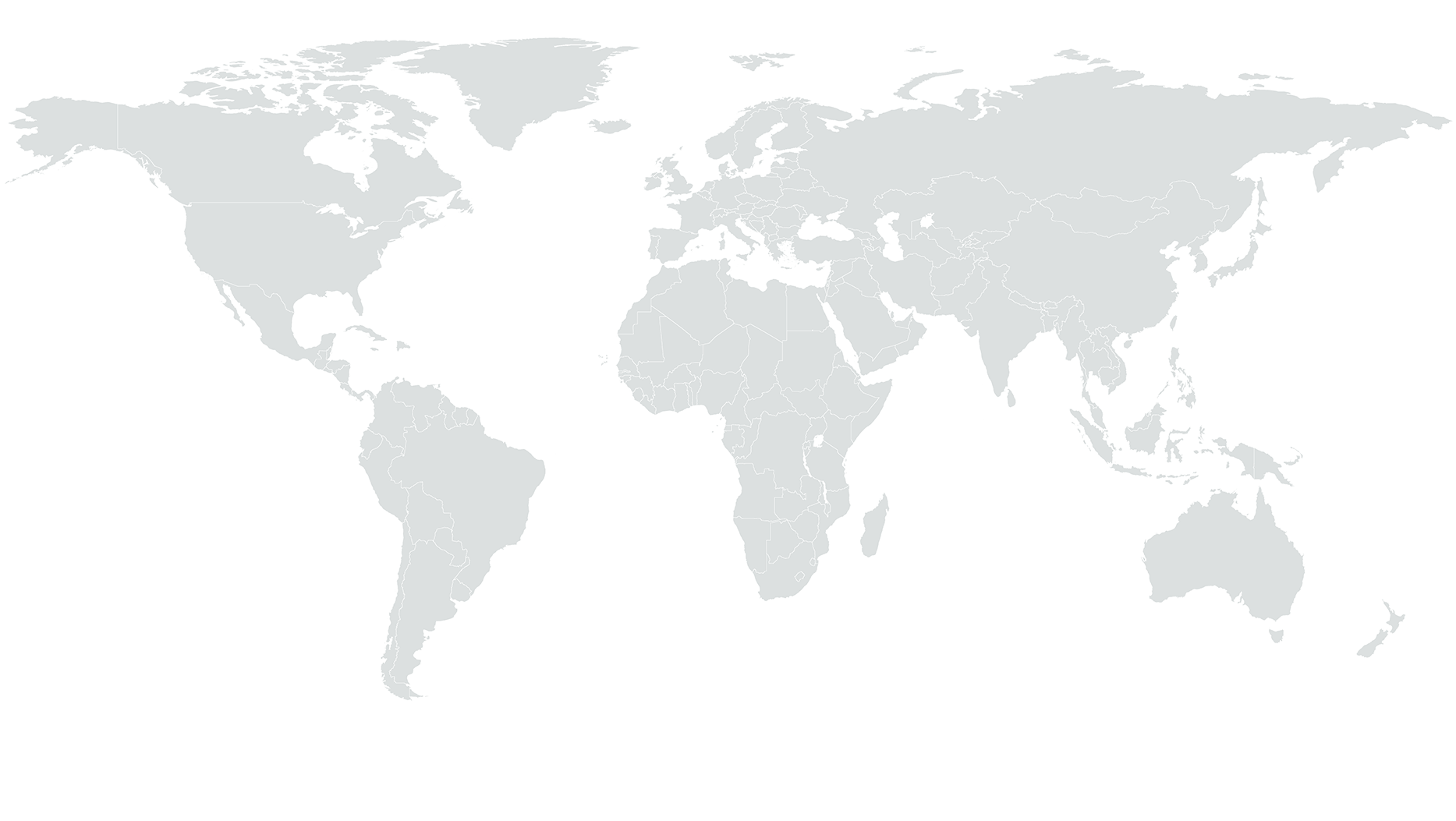
scroll down
scroll down
EDCTP looks back at a successful and fruitful Tenth Forum, which was held from 17 to 21 October 2021 virtually from Maputo, Mozambique. The theme, Equity in research for health, ran like a thread through all the Forum's sessions and culminated in a lively debate which once again showed the commitment of all partners and stakeholders towards this goal.
overview
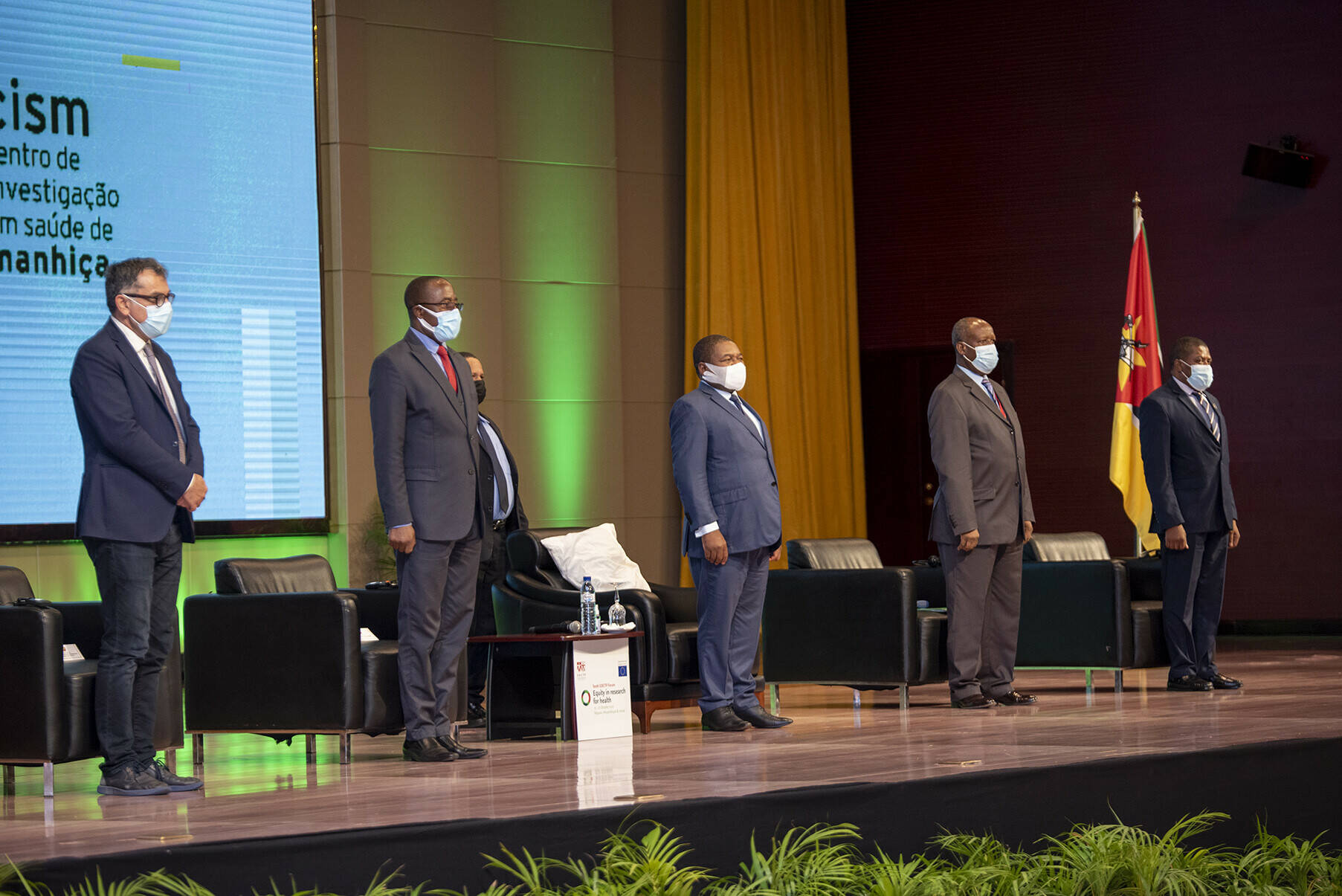
Next steps to further community engagement
To consolidate its work in community engagement, EDCTP has created a working group involving experts from the General Assembly and the Scientific Advisory Committee. Currently, the working group is reviewing EDCTP-funded research through the lens of community engagement. It will develop recommendations to strengthen EDCTP’s strategy in this area, taking into consideration the orientation of the future third EDCTP programme, i.e. its expected increased focus on late-stage product development, vulnerable populations and emerging and re-emerging infections.
Unfortunately, key populations that can most benefit from successful interventions, are often excluded from the clinical product development. EDCTP’s focus on these key populations requires good participatory practices for engagement from study inception right through to results dissemination.
Therefore, EDCTP aims to ensure that effective community engagement is an integral part of the research and capacity development initiatives it funds. This should result in increased awareness and active involvement of community stakeholders in research activities and decision-making. Collaborative partnering with stakeholders is key to building transparent, meaningful, mutually beneficial, and sustained relationships. Respectful relationships addressing the interests of communities underpin scientifically rigorous and ethical trials. This will contribute to reliable and valid data that can inform prevention and treatment strategies for emerging pathogens[1] and poverty-related diseases.
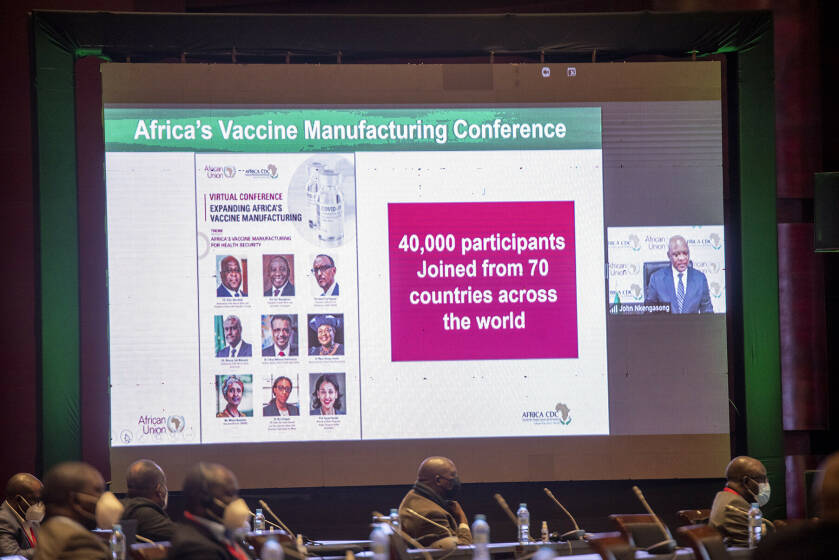
COVID-19 and its impact on the work of EDCTP
The current pandemic was of course much discussed throughout the Forum. Many speakers said that this new threat to health has exposed many existing inequities, not just between regions and countries, but between men and women, and most importantly between those with higher and those with lower incomes. Presentations focusing particularly on COVID-19 included an account of Mozambique’s own vaccination programme (given by Dr Esperança Sevene), highlighting both the need to vaccinate pregnant and lactating women and the essential requirement of improved pharmacovigilance to detect and act on adverse events following vaccination. An overview of the challenges for Africa as a whole was also given by Dr John Nkengasong of Africa Centres for Disease Control and Prevention. One of the Forum’s symposia (sponsored by Deutsche Stiftung Weltbevoelkerung [DSW]) also looked at the impact of the pandemic, the role of partnership and the potential opportunities that might result from it. Several parallel sessions and oral poster presentations presented the results from projects that were supported by EDCTP’s COVID-19 research in sub-Saharan Africa emergency funding call.
It is ironic, given the inadequate supply of vaccine doses available to Africa, that acceptance rates amongst Africans offered COVID-19 vaccination are exceptionally high – much higher than in many countries in other regions where vaccines are readily available. In the meantime, COVID-19 has been responsible for delays and disruptions to health research and to the delivery of healthcare across Africa.
Governments, funding agencies and many institutions around the world have quite rightly made big changes to how they work in the light of the pandemic. Many speakers said the ‘architecture’ of health research is changing. This poses challenges for individual researchers and for organisations, including EDCTP. The full impact of COVID-19 is of course not yet clear and will not be until the pandemic resolves. On the positive side, the new recognition of the damage that can be caused by an infectious disease may result in more research funding and improved epidemic preparedness. But there have been wake-up calls before that were not heeded.
Our host nation: Mozambique
More than just providing a conference hall, Mozambique was responsible for many inputs to the Forum. The Local Organising Committee played an important role in the event. To have a Forum opened by a serving President – His Excellency Mr Filipe Jacinto Nyusi, President of the Republic of Mozambique – was both an honour and a tribute to what EDCTP has achieved. Mr Nyusi said that his presence could be taken as an indication of the commitment of his government to health research as a means of addressing poverty.
Forum participants were then welcomed by Dr Leonardo Simão, who is Chair of the Local Organising Committee as well as being EDCTP High Representative for Africa. Dr Simão spoke of the importance of health workers making decisions that were based on evidence. This is well recognised in Mozambique and has been stressed in training at the National Institute of Health (INS) and the Manhiça Health Research Centre (CISM). Also part of the welcome were singing and dancing and two short films about the country.
Mozambique’s Minister of Health Hon. Dr Armindo Tiago said that Mozambique had been a member of EDCTP since the second programme – EDCTP2. He stressed that EDCTP has shown itself to be an important force in developing new interventions. It has helped in the battle against AIDS, malaria, TB and also COVID-19.
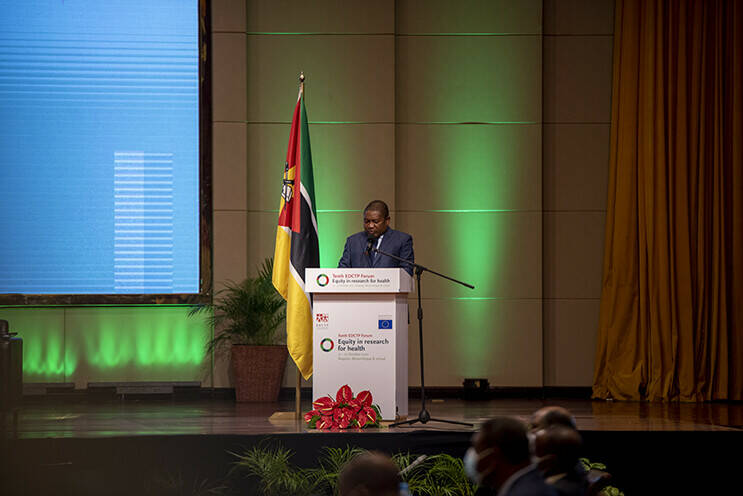
The EDCTP Tenth Forum theme: Equity
- the inequity in global COVID-19 vaccination rates is striking
- more research is now taking place on the infections responsible for much of Africa’s disease burden but we must work towards achieving equitable access to the products which result from this research
- it is not just a matter of supplying medicines; sound health systems are required that address such neglected matters as pharmacovigilance
- neglected diseases affect mostly the very poorest people; they also must be reached with new products and services
- women’s health conditions (such as female genital schistosomiasis) receive insufficient attention
- Africans should have access to all new technologies still under development, including the most advanced such as personalised medicine
- African scientists face more barriers in their career progression than their colleagues in other regions
- we must increase the number of female scientists, for which we need a clear strategy
- equity can only be achieved if everyone wants to make it happen; a change in attitude/mind-set is what is most needed
- the example of other nations – such as China, India, South Korea – show us that Africa too can be a science powerhouse and reduce its burden of disease.
EDCTP has always made clear that addressing inequalities is a cornerstone of its programme and central to its mission. Asked why it had been chosen as the main theme of the Tenth Forum (Equity in Research for Health), Programme Committee Chair Professor Catherine Hankins said it was very appropriate as there are so many inequalities relating to health research. These include North-South disparities and the difficulties faced by women researchers in comparison with their male colleagues.
Equity was the red thread through all the Forum’s sessions and culminated in the Forum’s first ever debate, in which a panel tried to win the public vote in favour or against the motion: Equity in innovation, partnership, and research is a desirable but unrealistic goal. The motion was defeated and the majority of voters believed that equity is possible and is already happening now. A sponsored symposium was organised by the European Global Health Research Institutes Network (EGHRIN) - Equal Voices: Addressing Inequities in Global Health Research Participation speakers. Throughout the course of the conference references were made to specific challenges in achieving equity. These included:
EDCTP and the key role it plays
The Forum demonstrated the respect that EDCTP has won. The focus on meaningful partnerships and African leadership has been much praised. The partnership is now being referred to as a blueprint for new ‘EDCTP-like’ initiatives. The importance of the Forum itself has also become clear – it has grown since the first meeting in Rome at which fewer than 100 people were present.
The Forum was given some glimpses of the deliberations now under way that will determine the way in which the partnership’s next phase – the Global Health EDCTP3 Joint Undertaking – will be structured and how it will seek to address the many challenges facing the health of people across Africa.
Yes, there were some technical glitches, but thanks to the hard work from the secretariat and the organising and programme committees, the hybrid conference format worked. As Dr Michael Makanga (EDCTP Executive Director) observed, mid-pandemic it is actually a very appropriate time to hold a Forum!
Community engagement and ethics review
The EDCTP-funded projects to develop capacities for ethics review and regulatory capacities usually conduct an information meeting with stakeholders including the community. The aim of these meetings is to inform community members on research ethics and the regulatory approval process.
The HATUA-KENYA project ‘Enabling compliance and building capacity and community for clinical research in Kenya’ illustrates such engagement. In collaboration with the Bioethics Society of Kenya, it organised several workshops and events to support sharing of experiences across institutions and discuss ethics issues. The project has held open online ‘bioethics cafes’. A conference on ‘Contemporary Issues in Bioethics’, in March 2020 in Nairobi, Kenya, covered topics such as community engagement, research involving minors, and ethical issues during pandemics.
